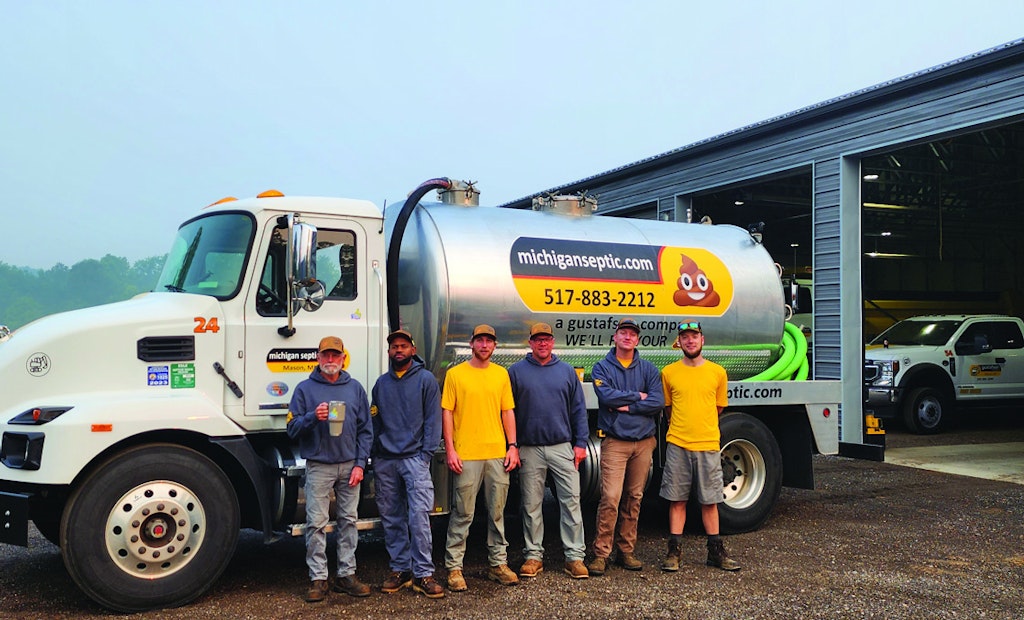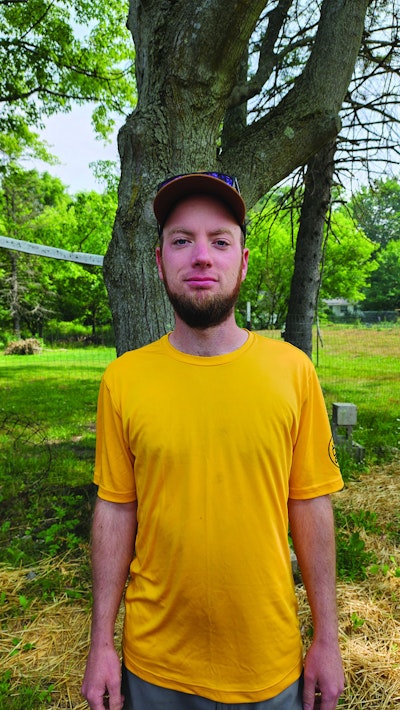
The Michigan Septic team includes, from left, Roger Gustafson, Trae Smith, Cole Sworden, Matt Gustafson, Ethan Gustafson and Casey Fiedler. Behind them is a 2022 Mack MD6 with a 2,500-gallon aluminum tank and National Vacuum Equipment VE blower.
Name and title or job description: Casey Fiedler, co-owner with Matt Gustafson
Business name and location: Michigan Septic LLC, Mason, Michigan
Services we offer: Everything septic — design and installation of conventional, advanced and alternative systems, maintenance,...






